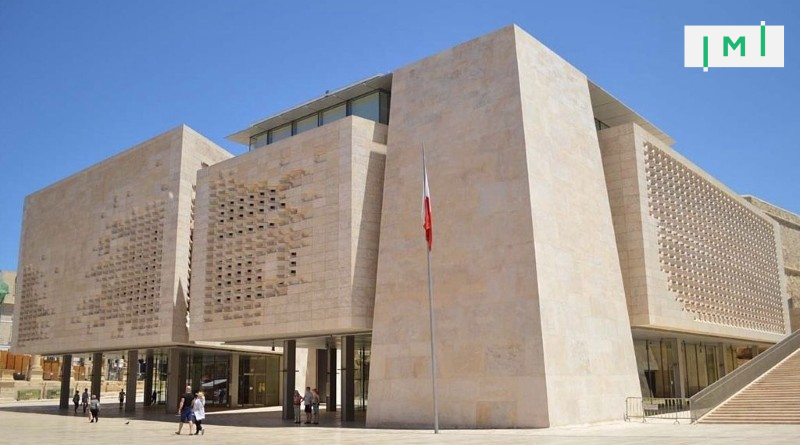Malta’s fast-tracked citizenship bill would remove agents from the equation and shift to direct government applications.
Malta fast-tracked legislation to end its citizenship-by-investment (CBI) program through Parliament on Wednesday, completing both the second reading and committee stage in a single session. The bill expands the country’s Citizenship by Merit (CBM) framework in response to the European Court of Justice ruling, with only procedural steps remaining before enactment.
The new bill, Legal Notice 140 of 2025, officially replaces the Individual Investor Program (IIP) and the Malta Exceptional Investment Naturalization (MEIN) framework.
Expanded Professional Categories and Definitions
The legislation under Article 10(9) broadens eligible categories beyond the previous framework. “Exceptional services” and “exceptional contributions” now explicitly include work by “scientists, researchers, athletes, sports persons, artists, cultural performers, entrepreneurs, philanthropists and technologists, amongst other persons of interest to the Republic of Malta from time to time, or to humanity.”
Malta has updated the definition of “exceptional interest” to refer to individuals whom “the Minister deems to possess the necessary skills, profile, qualities, talents and expertise that are considered to significantly advance or benefit the national interest of the Republic of Malta.” This language continues to empower the Minister to make case-by-case assessments beyond fixed categories.
Philanthropists and technologists represent newly added categories, while the amendments remove all references to “investors” from the legal framework. The changes align with Malta’s Vision 2050 emphasis on value creation and job generation.
Ryan Darmanin, COO & Managing Director at Latitude Consultancy Malta, notes that “unlike prior frameworks with predefined criteria, the new approach introduces a discretionary evaluation process based on the applicant’s demonstrated national relevance or exceptional contribution.”
Strengthened Evaluation Process and Oversight
The amendments restructure the evaluation mechanism, moving from a discretionary advisory format to a more formalized recommendation process. The new rules state that the Community Malta Agency “shall recommend to the responsible Minister whether an applicant should be granted Maltese citizenship or not,” rather than simply offering an opinion.
The board responsible for evaluation, composed of individuals with “adequate experience and standing,” must now consult sectoral authorities when necessary and conduct interviews. These steps mark a departure from earlier frameworks, where ministerial discretion carried more weight in the absence of formal checks.
Darmanin observes that “the inclusion of sector-specific endorsements and a multi-tiered due diligence structure reflects a more calibrated assessment mechanism, with emphasis on individual merit and long-term alignment with national priorities.”
Article 10A establishes that the Minister shall consider the board’s recommendation before making a final decision. Though ultimate authority still rests with the Minister, the updated process introduces additional procedural requirements.
Elimination of Fixed Financial Thresholds
The new framework removes all predetermined payment structures that characterized the MEIN policy. The amendments delete the definition of “individual investor program” from Article 2 of the principal act and eliminate references to commercial transactions throughout the legislation.
Affairs Minister Byron Camilleri emphasized that “there is no set amount that one will pay to obtain Maltese citizenship” as applicants must demonstrate their proposed contributions rather than meet financial benchmarks. Applicants must submit applications “in such manner as may be prescribed” with proposals outlining exceptional services or contributions.
Darmanin notes that “for practitioners, this places greater importance on structuring applications that clearly articulate tangible value within the context of Malta’s policy objectives and evolving national interest.”
The proposed law also discontinues the role of licensed agents entirely. While the Community Malta Agency continues to administer applications, the licensed intermediaries central to previous programs no longer participate in the application process.
New Appeals Mechanism
The amendments introduce a formal complaints process through the Citizenship Regulator. Article 25A establishes that “the Regulator may investigate complaints received by the applicant in the prescribed form, about the application process for the granting of Maltese citizenship by naturalisation on the basis of merit.”
The Regulator must “present his conclusions to the Minister” following investigations. This provides recourse for rejected applicants while maintaining ministerial authority over final decisions.
Extended Deadlines for Citizenship by Descent
Several provisions extend eligibility timelines for citizenship by descent. References to cut-off dates in 2007 and 2010 have been updated to 2028, addressing concerns from diaspora communities and preserving eligibility for a wider segment of Maltese descendants.
The bill also clarifies citizenship rights for adopted children. It distinguishes between adoptions before and after August 2020, stating that adoptees under 18 are considered as children of the adoptive parents for nationality purposes. Adoptions of adults post-2020 will no longer qualify the adoptee for citizenship.
Clarified Adoption Provisions
New language clarifies citizenship rights for adopted children across different time periods. The amendments specify that “any reference to the parents of a person who was lawfully adopted on or after the 1st August 2020 and who was on the effective date of his adoption under the age of eighteen years, shall be construed as a reference to the adopters.”
The law establishes distinct treatment for adoptions occurring in different eras. Post-2020 adoptees under 18 receive clear citizenship pathways, while “an adoption of any person made on or after the 1st August 2020 who on the effective date of his adoption was eighteen years or over, shall be without effect.”
Transition and Political Consensus
The government published Bill No. 140 on July 16, and Parliament moved the legislation through with unprecedented speed to meet EU compliance deadlines. Following its first reading on June 30, Parliament unanimously approved the legislation during the second reading on July 23 before immediately proceeding to the committee stage during the same session.
Parliament completed the committee stage live on air, with members discussing and voting on each of the 11 clauses. The expedited process reflects urgency to comply with the European Court of Justice ruling before the summer recess.
Both government and opposition parties supported the framework, though the Nationalist Party proposed that the President, rather than the Minister, should have final authority over citizenship decisions. Camilleri rejected this suggestion, arguing it would inappropriately involve an apolitical figure in controversial decisions.
The government also rejected opposition amendments seeking explicit prohibition of commercial elements, with legal experts arguing the bill’s focus should remain constructive rather than punitive.
The changes would take immediate effect for new applications if they become law, while preserving existing citizenship grants under the previous MEIN policy. The government clarified that any “citizenship obtained before these changes in the law remain in effect and remain regulated by the same rules with which they obtained citizenship.”
The government will continue publishing names of successful applicants to preserve transparency measures.
However, pending applications under the previous program do not transfer to the new framework. The government noted that “pending applications do not count,” creating a clear separation between the old and new systems.
The bill’s unanimous approval by both the ruling Labour Party and opposition Nationalist Party, combined with Parliament’s decision to compress the second reading and committee stage into a single session, indicates broad political consensus on EU compliance.
Nationalist Party spokesman Darren Carabott welcomed the changes, noting his party “had always insisted there should be no price tag on being Maltese,” while the government’s rush to complete substantial legislative work before summer recess suggests the remaining third reading and presidential assent are procedural formalities.
Earlier this week, Malta also announced changes to its Permanent Residency Program, focusing on adjusting the fee criteria and restrictions on real estate investments.
Explore IMI’s Tools and Resources
Ahmad Abbas is the Editor of IMI Daily, IMI’s flagship news publication.


